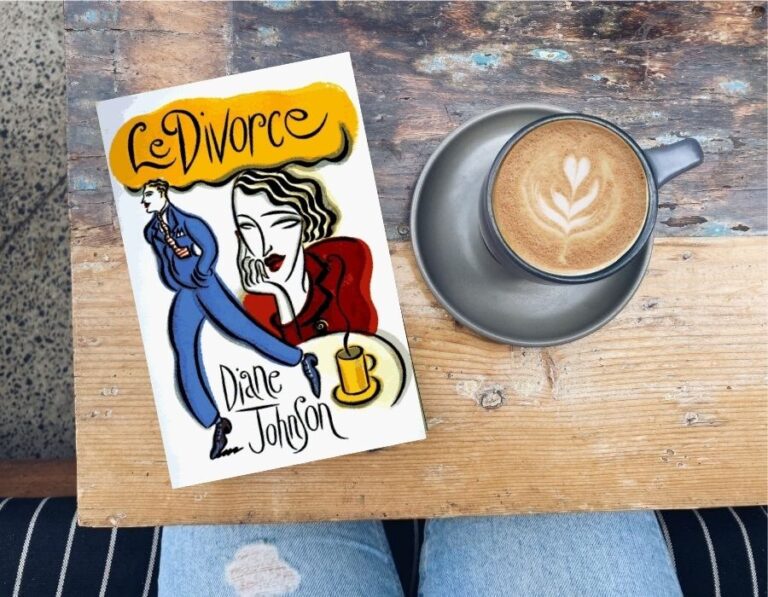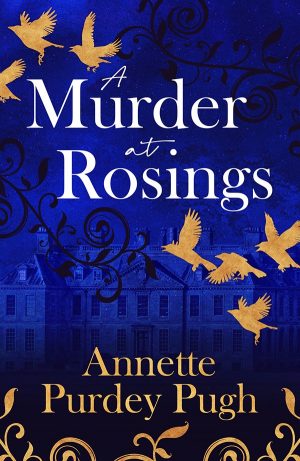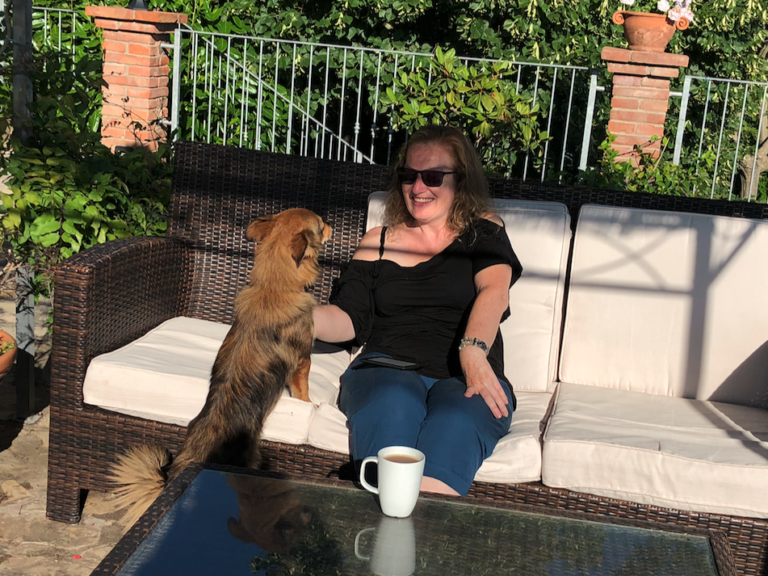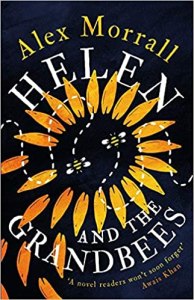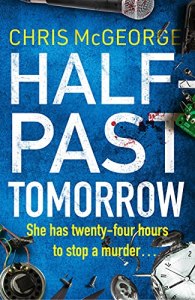It took over a decade of planning, learning, and tweaking, but here we are. The first chapter was written on a beach in Hawaii (pen and paper), when I was sixteen, moments after I set down the final Harry Potter book. It is time to start my own, I thought, buzzing with energy.
As a kid, I read Harry Potter and thought, huh, there’s people who spend all day dreaming up a fantasy world, then share it with the world? I want to do that for a job! Creating my own perfect fantasy world, with all the wildest creatures, societies, and wildernesses I can dream up.
It is an interesting question, as it alludes to the importance of the illusive trait of re-readability in a book or story, which is often on my mind (and complain about when stories are too graphic). It would have to be a world where I would want to spend time in, to revisit over and over, just to dwell in that universe. Though I think evidence points to Born of Wind, proven based on sheer time spent on it, and which I created for the purpose of building my own world, my favourite creatures, characters that feel like friends, etc. otherwise I never would have finished it. And the need to keep on changing it into something desirable to read.
Born of Wind is set in a unique fantasy world, where different groups of elemental peoples struggle to coexist. It’s told from the eyes of teenagers at different levels of these conflicting societies. Meleena is an aquatic villager, of the Meruyan nation, who are still adjusting to a new life on land, while her counterpart Flax is a forest Warix, a race who can control the wind.
In Born of Wind, the Meruyan race started in the sea and are coming out to a life on land, questioning if it’s better to be there or back to the sea. It is an analogy for the age of technology, and our often-held desire to put it back in the bottle, when it’s already too late. We can’t undo technology once things are invented, even if they actually make aspects of life worse. What’s the right answer? How can we mesh the nostalgia for a simpler life with nature, and the expectations and advantages of technology?
1. Tell us a little about Born of Wind.
Meleena never quite fitted in among her fellow aquatic Meruyans, always skipping school to hide out and marvel at the natural world around her. So when she wins a place on the coveted Council Apprenticeship team, no one is more surprised than her.
J.B. Lesel is the author of Born of Wind, which was published by Vulpine Press on 2 March 2021.
As she embarks on a tour of the nations, Meleena’s curiosity catches the attention of the Warix, a race born with the power to control wind. But she is unprepared for the secrets she uncovers as she explores this new land. The Warix are locked in a deadly civil war, and her own people are being oppressed and exploited with no way out.
Today I have Q&A with J.B. Lesel to find out more about the book.
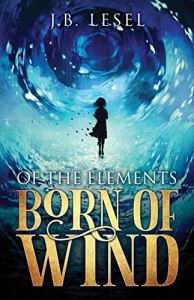
I’d say I’m a ‘plan, plan’ writer—two out of three plans: I write an outline and then outline the outline (So paragraphs about what happens, then go more granular, like a book written all in bullet points), but eventually there is a flow when I flesh them out into the text itself.
There are other themes explored by these characters on a personal level: openness for help vs. radical self-reliance, confidence vs. agreeableness. The psychology behind who we are, which shapes us all, providing complex characters: villains who are also caregivers, the anger we hold inside which can motivate and destroy.
About the Book
Born of Wind then became a place to put my thoughts, life lessons, notes about life, and opinions on shocking injustices… you know, the usual things young adults go through. Thus, Born of Wind was a living, breathing thing that evolved and grew with me.
I’m a big nature lover, going weekly on hikes and being near the beach. I keep a lovely garden, enjoy painting or craft projects…my sister calls me a crafts witch. I often escape the city to places I can freely wander in the woods, like my character, Meleena. She is like a time capsule of a younger version of myself, where I am now relearning to drop the need to ‘do’ and enjoy simply ‘being’ with the trees, enjoying the lingering where I begin to notice the little things again.
3. Are you a plan, plan, plan writer or do you sit down and see where the words take you?
Apparently, my brain needs mental chewing and a place to put ideas that feel useful to the world. That energy now goes into the second book in the series, which is still in progress.
7. I like to end my Q&As with the same question so here we go. During all the Q&As and interviews you’ve done what question have you not been asked that you wish had been asked – and what’s the answer?
5. What do you do when you aren’t writing? What do you do to relax and get away from it all?
2. What inspired the book?
4. Was there anything about the process of publishing a book that surprised you?
I love this question! One thing people don’t ask about that I wish they would is, “What are some of the major analogies in the book?”
6. If you could only read one book for the rest of your life which book would it be?
Desperate to resolve this tangled conflict, Meleena sets out to locate an ancient weapon sought by both sides. Can she unite these warring peoples in time to save her own?
Meleena and her two friends, Deem and Talla, (among other things) represent the ways of investigating this question. Deem advocates for the joy of a simpler time and for the Meruyan people to stay living in the sea, while Talla sees moving to land as progress and irresistible inevitabilities. Meleena is unsure, therefore open to learning and exploring an answer alongside the readers.
I would call it a brick wall. And then you study it for cracks of light, which you can peer through to the other side, and that’s the eventual finding of the publisher, in my case, Vulpine. You do your best to rewrite and send to houses online, but without a face or a personality there isn’t the spark needed to make it happen. I went to a book fair in Germany where I was able to meet publishers face to face, forming personal connections and there I found my publisher. I say, if you’re serious about getting published, share your work with friends, see critique as an exciting path to improve, and study the craft so you know how to follow and break the rules.
The way I think about this answer may say more about me than the book I would choose. I’m a very broad reader, so confining to one genre is hard! I like to overthink and ponder. I paced my room and skimmed my bookshelf wondering. Any fiction book would get boring after some reads, and how often would I be re-reading it? Would I just stop reading? Or maybe if I picked something dry, like a philosophy book, the depth could keep me reading and puzzling for decades (like Kant, ha!). But let’s face it, that would be boring and I’d probably also stop reading.
The really valuable ingredient to my work is my thought funnel as well, the “mental chewing” I mentioned earlier. I keep a journal on my phone (pinned to status bar for quick access, so you know it’s important), dedicated to thoughts that can be added to Born of Wind, sometimes about subplots or details to add, other times vague and philosophical quotes I want to fit in somewhere. Then I add whole detail chains to the book all at once across several chapters. This is how I manage (and hopefully avoid plot holes) in such a large epic fantasy with many details. Keeping a spreadsheet after the fact helps, but they become outdated quickly if not kept up, and I admit, I don’t!
The story focuses on their struggles as they learn of their world and try to define their place in it, navigate first love, spy on each other; you know, the usual many responsibilities bestowed on our youth. They deal with the contradictory expectations for happiness and success. Meleena is trying to leave her quaint, boring village and family in search of a bigger purpose, while Flax is trying to escape the purpose others have set up for him, and to find his real father in an enemy city.


